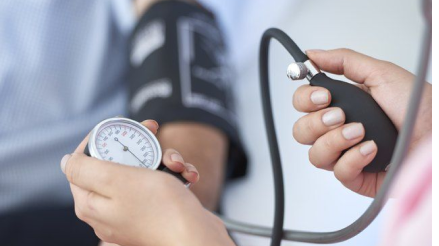You may also like…
What is a hypertensive crisis ?
When blood pressure exceeds the threshold of 180/120 mm Hg, it enters a critical phase known as a hypertensive emergency or crisis. In such instances, it is imperative to seek immediate medical assistance for individuals with these elevated blood pressure readings.
Left unaddressed, high blood pressure poses a significant risk, increasing the likelihood of heart attacks, strokes, and other severe health complications.
Hence, it is crucial to undergo regular blood pressure assessments, with a recommended frequency of at least once every two years, commencing at the age of 18. Some individuals may require more frequent monitoring based on their specific health needs.
Complications of Hypertension
High blood pressure can inflict significant harm on various vital organs, including the heart, brain, kidneys, and eyes, casting a shadow on one's overall health. The encouraging news is that, in the majority of cases, proactive management of blood pressure can substantially mitigate the risk of experiencing severe health complications.attacks, strokes, and other severe health complications.
Heart Attack and Heart Disease
Elevated blood pressure can wreak havoc on arteries, rendering them less elastic and impairing the smooth flow of blood and oxygen to the heart, ultimately paving the way for heart disease. This diminished blood supply to the heart can manifest as:
Chest pain, medically termed angina.
Heart attacks, an alarming occurrence wherein the heart's blood supply is obstructed, causing heart muscle cells to perish due to insufficient oxygen. The longer this blood flow remains obstructed, the more extensive the damage inflicted upon the heart. Heart failure, a debilitating condition characterized by the heart's inability to effectively pump blood and oxygen to other vital organs.
Stroke and Brain-Related Complications
High blood pressure can instigate the rupture or blockage of arteries that supply blood and oxygen to the brain, precipitating a stroke. Brain cells succumb to the lack of oxygen during a stroke, often leading to profound disabilities in speech, mobility, and basic functions. In severe cases, a stroke can prove fatal. Moreover, individuals with high blood pressure, particularly during midlife, face an increased risk of cognitive decline and dementia in later years.
Kidney Disease
Adults grappling with diabetes, high blood pressure, or a combination of both confront an elevated risk of chronic kidney disease compared to those devoid of these underlying conditions. The consequences of uncontrolled blood pressure can exert a significant toll on kidney function, emphasizing the importance of proactive management and vigilance.







